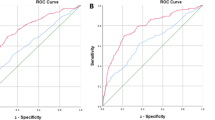Abstract.
Background: The standard staging evaluation for prostate cancer includes digital rectal examination, measurement of serum tumor markers, and radionuclide bone scan. In many institutions, abdominal/pelvic computed tomography (CT) scan or nuclear magnetic resonance imaging (MRI) is performed. We retrospectively reviewed 425 cases of newly diagnosed, untreated adenocarcinoma of the prostate to evaluate the ability of serum prostate-specific antigen (PSA) to predict results of staging abdominal pelvic CT.
Methods: The medical records of 425 newly diagnosed, untreated prostate cancer patients were reviewed. The following information was collected on a standard data form: age, clinical stage based on digital rectal exam, method of diagnosis, histological grade, serum PSA level, and results of abdominal pelvic CT including adenopathy and abnormalities of the upper urinary tract. The results of this review were tabulated and analyzed with regard to the ability of serum PSA level to predict positive results of abdominal pelvic CT.
Results: The mean PSA level of the study group was 22.1 ng/ml. Fourteen patients (3.6%) presented with a positive abdominal/pelvic CT (12 with adenopathy, one with a renal cell tumor, and one with an adrenal metastasis). Eleven of these (79%) had serum PSA levels of 30.0 ng/ml or greater, ranging from 30.0 to 234 ng/ml. No patient with a positive study presented with a normal serum PSA level. Two patients with a positive study had a serum PSA level between 4.1 and 10.0 ng/ml (0.6%), and one had a PSA level between 10.1 and 20 ng/ml (0.3%).
Conclusion: We conclude that in asymptomatic patients with newly diagnosed, untreated prostate cancer and serum PSA levels of less than 20 ng/ml the likelihood of positive findings on abdominal/pelvic CT is extremely low (<1.0%). Abdominal/pelvic CT does not appear necessary in this setting. With 200,000 cases of newly diagnosed prostate cancer each year in the United States, elimination of staging abdominal/pelvic CT in these patients could reduce medical expenditures for prostate cancer management by $20–50 million per year.
Similar content being viewed by others
Author information
Authors and Affiliations
Additional information
Received: 1 May 1995/Accepted after revision: 31 May 1995
Rights and permissions
About this article
Cite this article
Huncharek, M., Muscat, J. Serum prostate-specific antigen as a predictor of staging abdominal/pelvic computed tomography in newly diagnosed prostate cancer. Abdom Imaging 21, 364–367 (1996). https://doi.org/10.1007/s002619900083
Issue Date:
DOI: https://doi.org/10.1007/s002619900083




